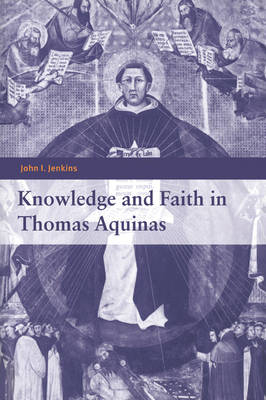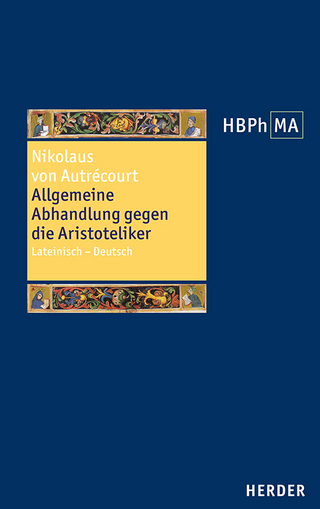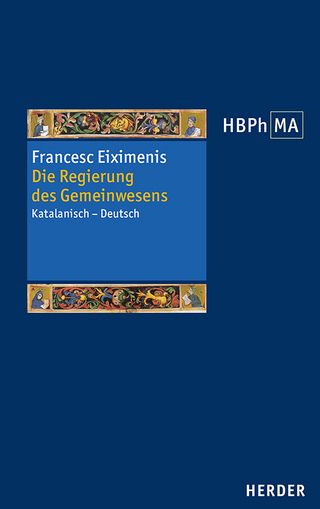
Knowledge and Faith in Thomas Aquinas
Seiten
2007
Cambridge University Press (Verlag)
978-0-521-04401-1 (ISBN)
Cambridge University Press (Verlag)
978-0-521-04401-1 (ISBN)
This book offers a revisionary account of key epistemological concepts and doctrines of St Thomas Aquinas, particularly his concept of scientia (science), and proposes an interpretation of the purpose and composition of Aquinas's most mature and influential work, the Summa theologiae, which has traditionally been regarded as a work for neophytes in theology.
This book offers a revisionary account of key epistemological concepts and doctrines of St Thomas Aquinas, particularly his concept of scientia (science), and proposes an interpretation of the purpose and composition of Aquinas's most mature and influential work, the Summa theologiae, which presents the scientia of sacred doctrine, i.e. Christian theology. Contrary to the standard interpretation of it as a work for neophytes in theology, Jenkins argues that it is in fact a pedagogical work intended as the culmination of philosophical and theological studies of very gifted students. Jenkins considers our knowledge of the principles of a science. He argues that rational assent to the principles of sacred doctrine, the articles of faith, is due to the influence of grace on one's cognitive powers, because of which one is able immediately to apprehend these propositions as divinely revealed. His study will be of interest to readers in philosophy, theology and medieval studies.
This book offers a revisionary account of key epistemological concepts and doctrines of St Thomas Aquinas, particularly his concept of scientia (science), and proposes an interpretation of the purpose and composition of Aquinas's most mature and influential work, the Summa theologiae, which presents the scientia of sacred doctrine, i.e. Christian theology. Contrary to the standard interpretation of it as a work for neophytes in theology, Jenkins argues that it is in fact a pedagogical work intended as the culmination of philosophical and theological studies of very gifted students. Jenkins considers our knowledge of the principles of a science. He argues that rational assent to the principles of sacred doctrine, the articles of faith, is due to the influence of grace on one's cognitive powers, because of which one is able immediately to apprehend these propositions as divinely revealed. His study will be of interest to readers in philosophy, theology and medieval studies.
Acknowledgements; Note on the text; List of abbreviations; Introduction; Part I. Scientia: 1. Scientia in the Posterior Analytics; 2. Scientia and sacred doctrine; 3. Scientia and the Summa theologiae; Part II. Intellectus Principorum: 4. The natural light of the intellect; 5. Grace, theological virtues and gifts; 6. The light of faith; Conclusion: Pedagogy in the Divine Scientia: 7. The scientia of sacred doctrine; Notes; Bibliography; Index.
| Erscheint lt. Verlag | 1.10.2007 |
|---|---|
| Zusatzinfo | 1 Tables, unspecified |
| Verlagsort | Cambridge |
| Sprache | englisch |
| Maße | 152 x 228 mm |
| Gewicht | 427 g |
| Themenwelt | Geisteswissenschaften ► Philosophie ► Philosophie des Mittelalters |
| ISBN-10 | 0-521-04401-4 / 0521044014 |
| ISBN-13 | 978-0-521-04401-1 / 9780521044011 |
| Zustand | Neuware |
| Haben Sie eine Frage zum Produkt? |
Mehr entdecken
aus dem Bereich
aus dem Bereich
Lateinisch - Deutsch
Buch | Hardcover (2024)
Herder (Verlag)
70,00 €


